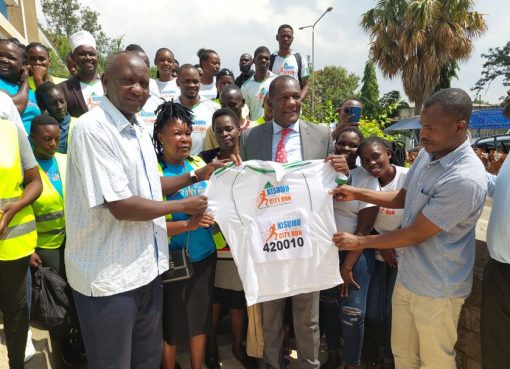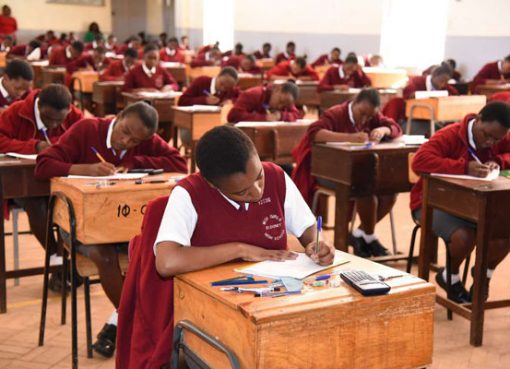The Social Protection, Culture, and Recreation Sector has presented its budget estimates for the Financial Years 2022/23 to 2024/25 during the public hearings aimed at enhancing public participation in the budget making process.
The sector based its presentation on six sub-sectors; development of Arid and Semi-Arid Lands (ASALs), Sports, Culture and Heritage, Labour, Social protection and Gender.
Principal Secretary (PS), State Department for Social Protection, Senior Citizens Affairs and Special Programmes, Nelson Marwa Sospeter, lauded the government for funding millions of households and individuals, among them the elderly, orphans and vulnerable children, and persons with disabilities, through cash transfers, for improved livelihood.
“The government is working on strategies to bring more vulnerable groups that were left out in the initial stipends, even in this tight budget,” Marwa assured, while stating the government’s position on social protection.
The Principal Secretary (PS), State Department for Gender, Professor Collete A. Suda, delved on the government’s commitment to fight and end Female Genital Mutilation (FGM), by next year in all the 22 counties, that the cultural practice is still prevalent.
“We are committed to ending Gender-Based Violence (GBV) and FGM in partnership with our development partners, the private sector institutions, civil society organizations and religious leaders as a collaborative project,” she maintained.
“The Generation Equality Fund is a global initiative, where Kenya co-shares one of the actions provision of Gender-Based Violence,” she added
Principal Secretary (PS), State Department for Sports, Culture and Heritage, Ms Josephta Mukobe, said that the Ministry has made significant strides in coming up with studies, to impart knowledge on the youth in sporting activities.
“The youth need an entrepreneurship center, where they can be trained on business management and engage in sporting activities, as a source of their livelihood,” she advised.
Meanwhile, the sector prides itself for playing a pivotal role towards the achievement of the national agenda, as well as contributing to the fulfillment of the various regional and international obligations protocols, including the promotion of sustainable employment; gender equity and equality, and harmonious industrial relations, and productive workforce.
The sector also safeguards children’s rights, implements special programmes for the development of ASALs and promotes diverse cultures, arts and sports, to enhance cohesiveness and Kenya’s regional and international competitiveness.
During the public hearing, the sector reviewed its performance of the last three fiscal years outlining its key achievements including the accelerated ASALs development, construction and renovation of major sports complex, conservation of heritage facilities, nurturing of arts and musical talent, gender empowerment, community development, promotion of best labour practices and social development, and children services, among others.
The sector saw an overall rise in absorption rate despite the overall allocation against the expenditure going head to head.
“In order to achieve its mandate, the sector will continue implementing its aforementioned priorities in the medium term with an aim of achieving key outputs in ASALs, Sports, Culture and Heritage, Labour, Social Protection, and Gender,” the presentation read.
The sector, however, decried the challenges brought about by the Covid-19 pandemic, which has adversely affected performance through job losses and aggravated vulnerability.
Further, inadequate budgetary allocation arising from re-allocation of resources to address emergencies such as the Covid-19 crisis, led to the underachievement of some of the planned sector priorities.
Cross-border Female Genital Mutilation Practices, online cyber-crime, radicalization of children, and other retrogressive cultural practices, according to the sector, have also negatively affected the realization of its mandate.
Nevertheless, the sector has adopted a multiagency coordination approach by working with State and Non-State Actors, with the former taking the lead.
“Globalization and emerging dynamics calls for review and development of policies, legal and administrative frameworks, to guide the stakeholders involved in providing services in the sector,” the statement read.
The sector additionally promotes the leverage on technology and scientific approaches to support delivery of services in the sector, even in situations of emergencies or pandemics.
The sector is currently working with State and Non-State Actors to develop Enhanced Single Registry Management Information System, as a repository for all potential vulnerable members of the society, to guide in the identification of beneficiaries and create synergy, transparency and accountability in social protection delivery systems.
By Michael Omondi





